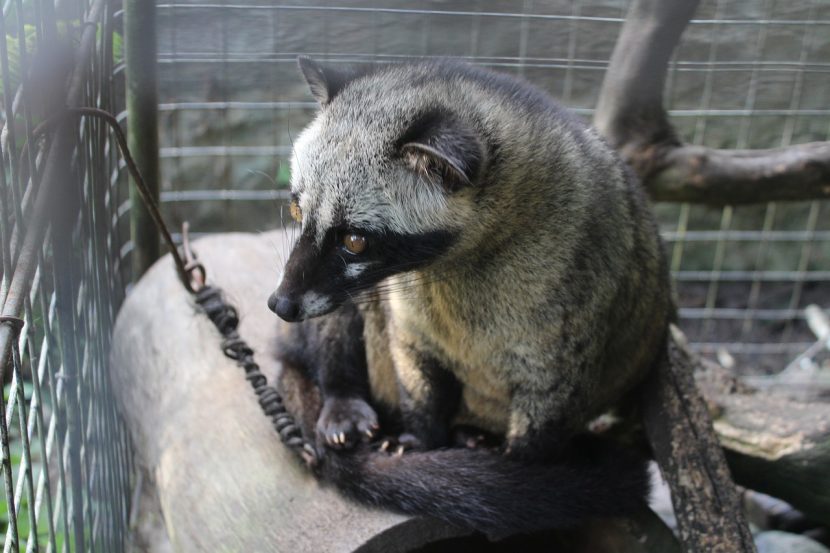You’ve probably heard of Kopi Luwak before. Due to its unique cultivation method and extraordinary price, it has taken the coffee world by storm in recent years.
But its price and production process are not the only things separating Kopi Luwak from plain old espresso. Curious to learn more about it? Then keep on reading.

What Is Kopi Luwak?
Kopi Luwak is certainly not just any coffee you can find in regular coffee shops. It is brewed from Arabica coffee beans that were digested by Asian Palm Civets, an animal native to Indonesia.
Sounds disgusting and unhygienic?
Well, the beans are carefully washed and dried, so it is perfectly safe for consumption. In fact, locals have been brewing Kopi Luwak for centuries with the practice being recorded as far back as the 1700s. It is now a premium quality coffee and very popular among the coffee aficionados of the world.
How Is It Produced?
- Farmers plant and cultivate quality Arabica coffee cherries
- These cherries are then fed to Asian Palm Civets, better known locally as Luwaks (most of the Luwaks used are caged Luwaks).
- The digestive acid and enzymes inside the civets digest the coffee beans, removing any flesh or chaff. The civets will then excrete the lightly fermented beans.
- Farmers will go through the Luwak dropping and handpick the coffee beans.
- The beans are then processed or more specifically washed, dried, and roasted carefully.
- Finally, the roasted coffee beans are packaged and sold.
How Much Does It Cost?
What catches the attention of most people is the extraordinary price of this coffee bean. A cup of Kopi Luwak is usually sold for SGD $115 to $300, while one kilogram of Luwak coffee beans can fetch a price of between SGD $300 to $1700!
Why You Should Drink Kopi Luwak…
Despite its not-so-appetising cultivation method, there is a reason why Kopi Luwak is so famous.
First of all, wild animals tend to only eat the best and most ripe coffee cherries. This will result in better tasting and higher quality coffees. Human coffee pickers, on the other hand, tend to just pick all and any coffee cherry they could find.
Another reason why Kopi Luwak beans are so popular is the process they undergo when passing through the digestive system of a Luwak. These Luwaks’ stomach acids will break down the fruity exterior of the cherries and prepare them for better drying and washing. Also, mould will not grow on the bean since there is no fruit left, leading to better quality coffee.
…And Why You Shouldn’t
Despite the superior flavour and texture of Kopi Luwak, there are a number of reasons why you should avoid it completely.
The biggest reason is probably that most Kopi Luwak beans are processed through caged civets instead of wild ones. Tracking down wild Luwak is very labour – intensive and not good for business.
That is why most businesses instead opt for caged civets. Since they are caged, they cannot travel and pick the best cherries, only eating the ones provided to them, which defeats the whole purpose of Kopi Luwak.
Another reason why Kopi Luwak is often frowned upon is animal abuse. There are often concerns regarding the living conditions of Luwaks since they are often unhygienic. Luwaks are also shy, nocturnal animals but they are locked in cages outdoors where tourists are often allowed to view them.
Farmers often also force – feed the civets and restrict them to coffee – only diet, often leading to malnutrition and health problems. The cages used also have wired surfaces, which are uncomfortable for the civets to walk or lay down in.
Apart from the ethical issue surrounding the whole production process, there is also the question of authenticity. Just like with anything that is sold at a premium price there will always be fakes, and Kopi Luwak is not immune to this. Some coffee farmers market their products as Kopi Luwak even though they don’t even have access to these animals.
Final Word About Kopi Luwak
The bottom line is that: if you can find certified authentic Kopi Luwak that is produced ethically using beans from wild Luwaks, then go for it.
But if you have any doubts about the origins of a Kopi Luwak product, we advise you to steer clear of it and save yourself a few hundred dollars.





